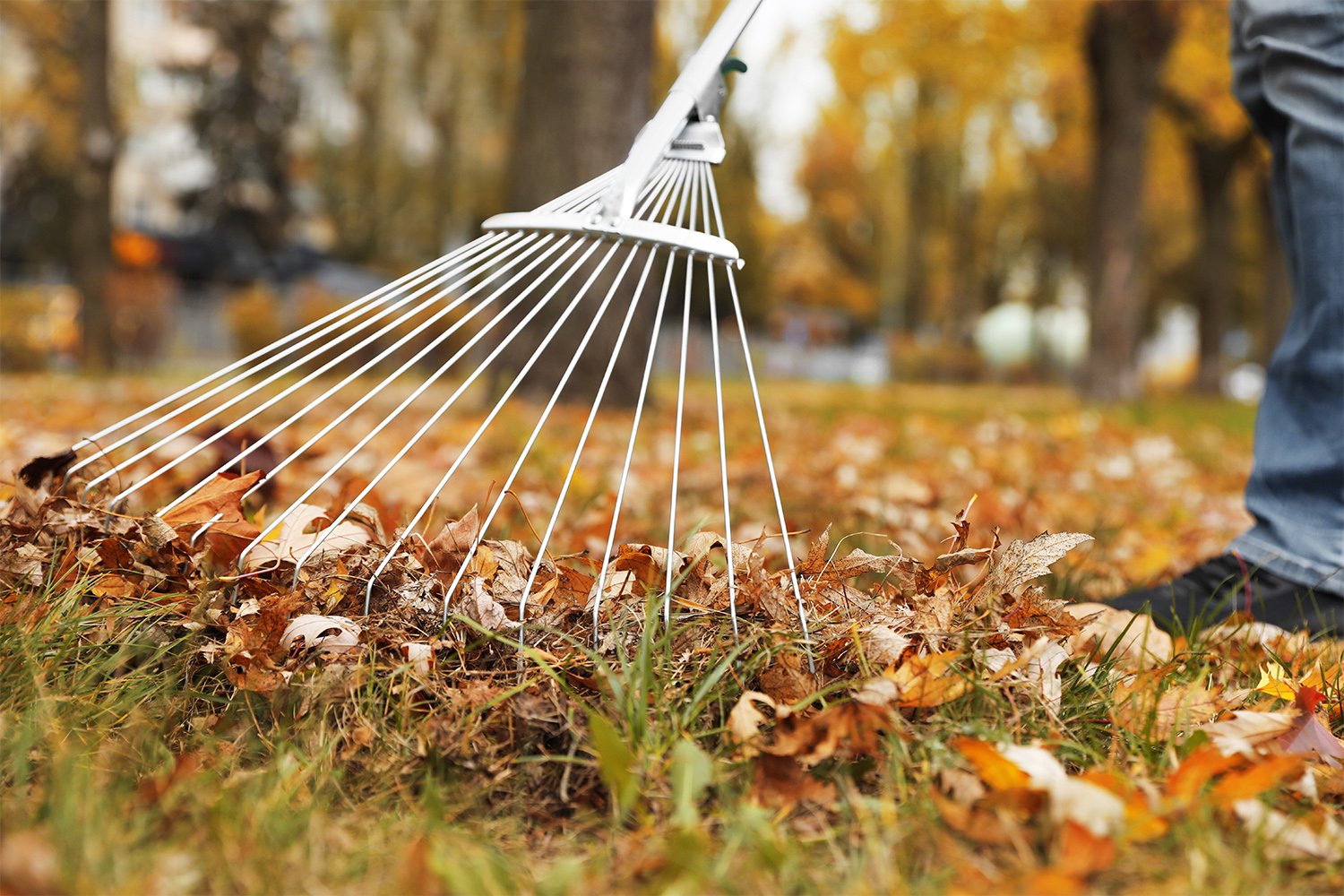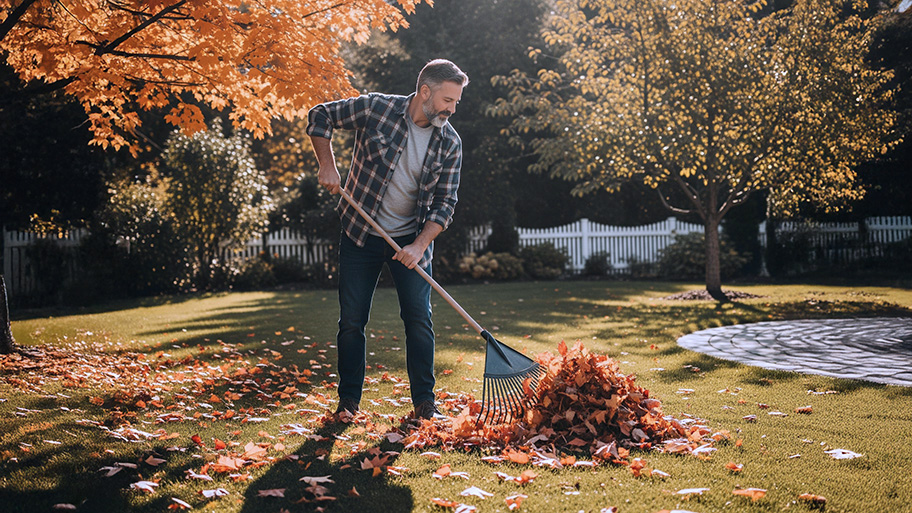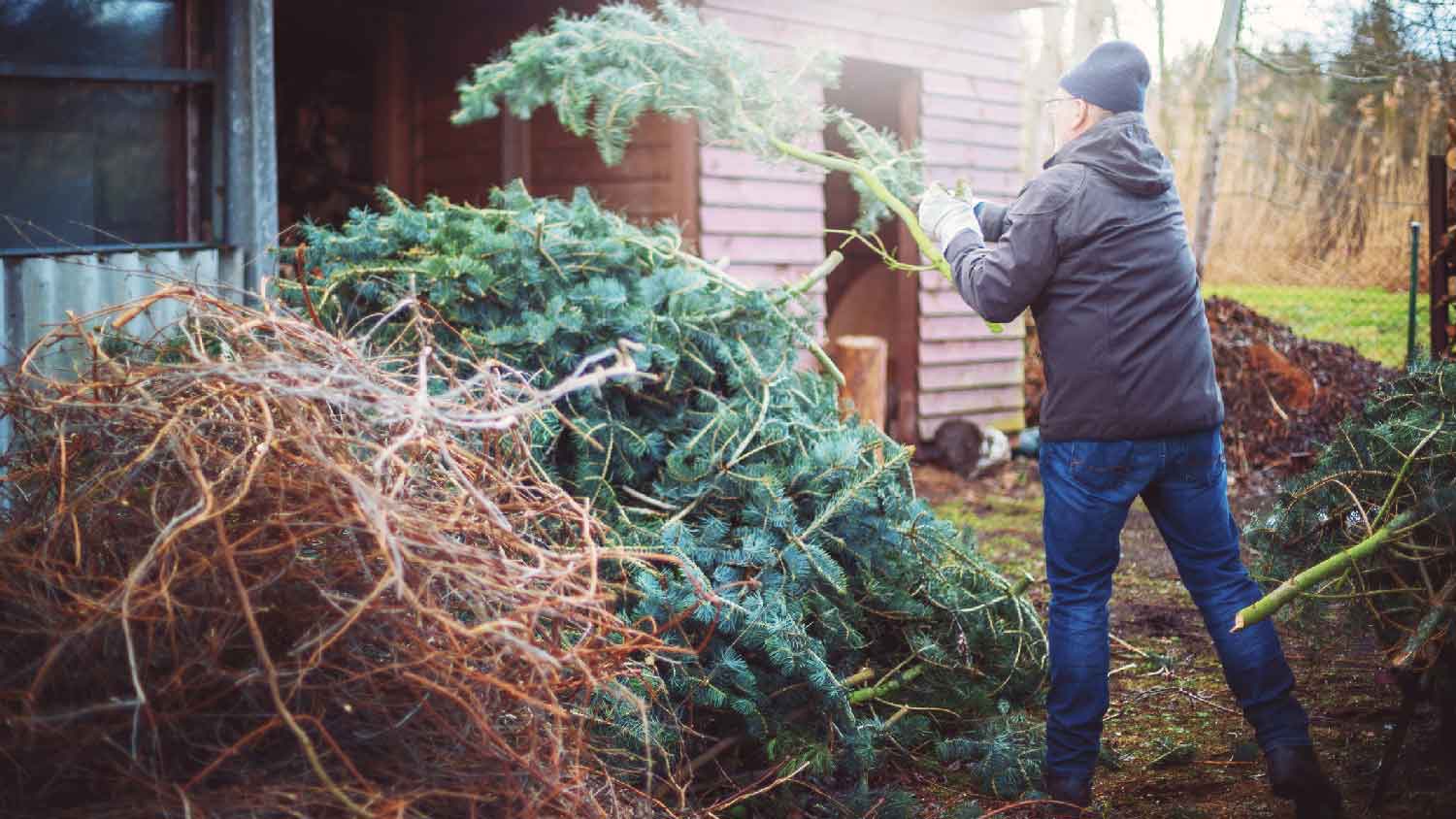
Autumn leaves are beautiful but also leave quite a mess to clean up. This guide will help you budget for your leaf removal cost this fall.
Learn how to efficiently tackle this task while benefiting your garden and the environment


Fall is the season of bonfires, tasty treats, fall festivities, and the radiant colors of changing leaves. However, it doesn't take long for those leaves to clog your gutters and cover your yard, so it’s time to learn the best way to rake leaves. The good news is you can make this task easier with the right tools and techniques. Learn the best way to rake leaves with these efficient tips.
There are various types of rakes made for different lawn and gardening tasks. Leaf rakes are designed to move leaves and other lightweight materials, such as grass clippings. They have a fan or triangle shape, and the ends are bent to hold the leaves as you rake.
They are usually made from plastic, metal, and bamboo, so they are lighter than other rakes, which makes this strenuous task much easier.
It may sound odd, but wearing protective gear when raking leaves is essential. Wearing sunglasses or safety goggles can prevent flying particles and debris from entering your eyes.
Using gloves while you rake can prevent blisters on your hands and protect you from bug bites, thistles, and thorns when you pick up the piles of leaves. You may want to wear a mask so you don't breathe in mold spores and dust from the leaves, too.
The best way to rake leaves is to finish the task before it rains. When the leaves are wet, they are soggy and heavier than when they are dry. It makes raking much more difficult, and if they are too heavy, it can break your rake or the bag you are using to dispose of them. If you cannot rake leaves before the storm, wait a few days until they dry out again.
If it is super windy, it's better to wait to rake. Otherwise, all your hard work will blow back all over the yard. However, if it's a slightly breezy day, then you can utilize the wind by raking in the same direction. You can stomp on the leaves to compact them down and prevent piles from blowing around.

The best way to rake leaves is to use small strokes for efficiency and prevent muscle fatigue. Also, you should rake in sections rather than tackling the entire yard at once.
Divide your yard into sections to make it more manageable. Make many small piles instead of fewer large ones, and dispose of the leaves in the area you are working on before moving to the next spot in your lawn.
Make raking leaves a cinch by using a tarp. Lay the tarp down and use rocks or other weighty items to hold it in place. Then, rake the leaves onto it, and fold the tarp to funnel them into lawn bags when you finish. Or you can buy a tarp with handles to make it even easier.
Mowing leaves into mulch is not only easier than raking them, but it's also beneficial for your lawn. The decomposing leaves contain essential nutrients that can promote grass growth.
You may have to mow over them more than once to shred them into small enough pieces that make it easier for the leaves to decompose. You can also use a bagger and put the mulch in your garden.
Simplify your leaf-removal task by disposing of your freshly raked leaves into a composting pile. Composting is good for the environment because it reduces waste and provides an ecosystem for insects and microorganisms.
Lawn critters break the leaves down, and it becomes a soil-like substance called compost that you can use in your garden and fall flower beds to add nutrients to the soil to promote healthy plant growth.

The best way to rake leaves is to bag up or dispose of the piles as you go. This method will keep your piles from scattering if it gets windy or you aren't able to rake your entire yard in one day. Remember to rake in sections and rid piles as soon as possible to simplify the process.
A yard vacuum is a fantastic tool for removing leaves with ease. Like a vacuum, it sucks up the leaves into a removable bin or bag. The removable bag makes discarding or distributing the leaves elsewhere easier.
You can also opt to use a leaf blower. However, you need to ensure you don't blow the leaves into the road or your neighbor's yard to deal with. You will still need to put them into piles and discard them.
Fallen leaves are actually important to nature and wildlife. Trees losing leaves is part of their natural cycle because it protects their roots and provides nutrients to the soil. Many insects, such as butterflies and bumblebees, hibernate in dead leaves during the winter.
Worms, beetles, and other insects seek shelter in the leaves, providing food for birds, frogs, turtles, and salamanders. A thin layer of leaves in your yard can also benefit your lawn because they act as a natural fertilizer.
What's the best way to rake leaves when you lack time or energy? Hire a professional leaf removal service near you to take on the task. Leaf removal can cost between $190-$600, depending on the size of your yard and the company. However, it may be worth the expense if you have physical limitations or your schedule is tapped out.
Some municipalities provide leaf removal services, but if yours doesn't, you still have a few options. Consider composting your leaves or turning them into organic mulch. Never burn your leaves, though --- this is not only a fire hazard but the smoke can be harmful to your health and the environment
From average costs to expert advice, get all the answers you need to get your job done.

Autumn leaves are beautiful but also leave quite a mess to clean up. This guide will help you budget for your leaf removal cost this fall.

A yard cleanup can keep your lawn clean and prepare it for the next season. Find out the average yard cleanup cost and what can affect it.

If autumn brings a blanket of leaves to your yard, you’ve got options. From mulching to free leaf removal days, here’s what to do with leaves in your yard.

If your yard has seen better days, a professional clean-up may be in order. Use these lawn care questions to prep yourself for a conversation with a pro.

Leaves are bound to fall, but how long will they stay there? Learn how long it takes for leaves to decompose and how you can speed up the process.

If your yard gets covered in leaves, you need the help of a trusty leaf blower. Follow our guide to blow leaves where you want them to go.